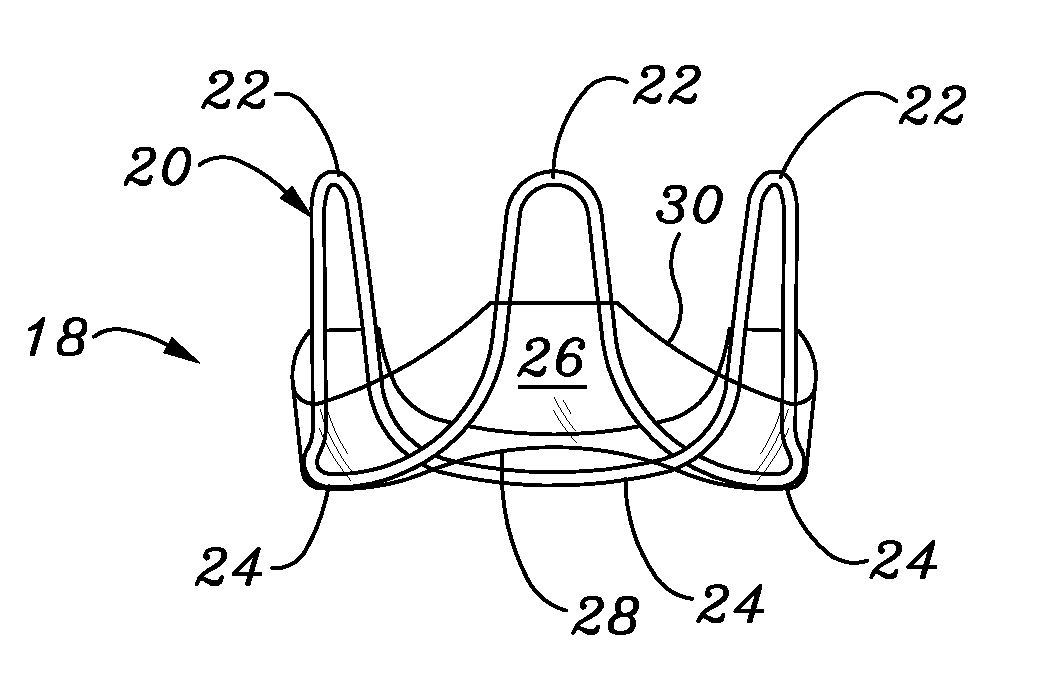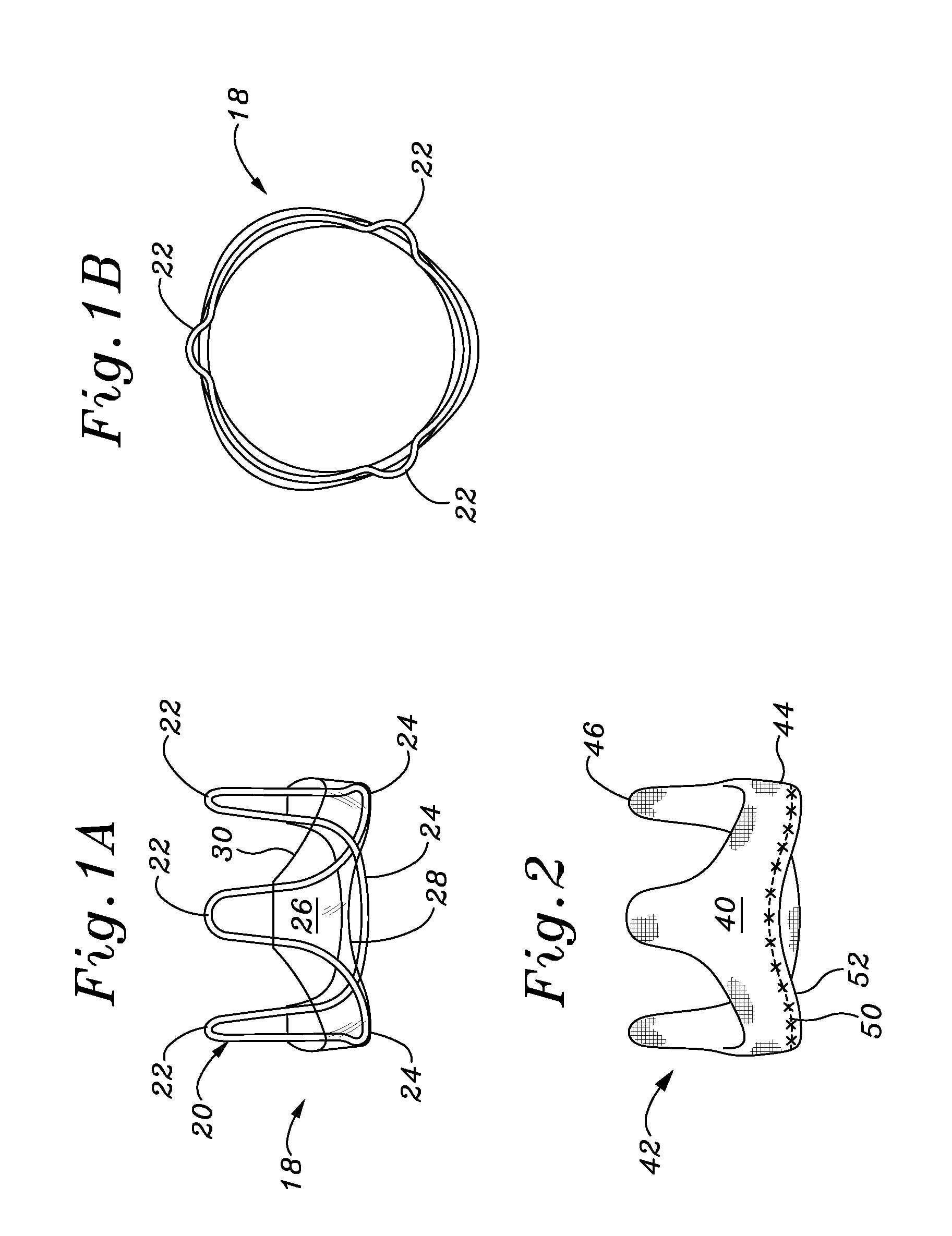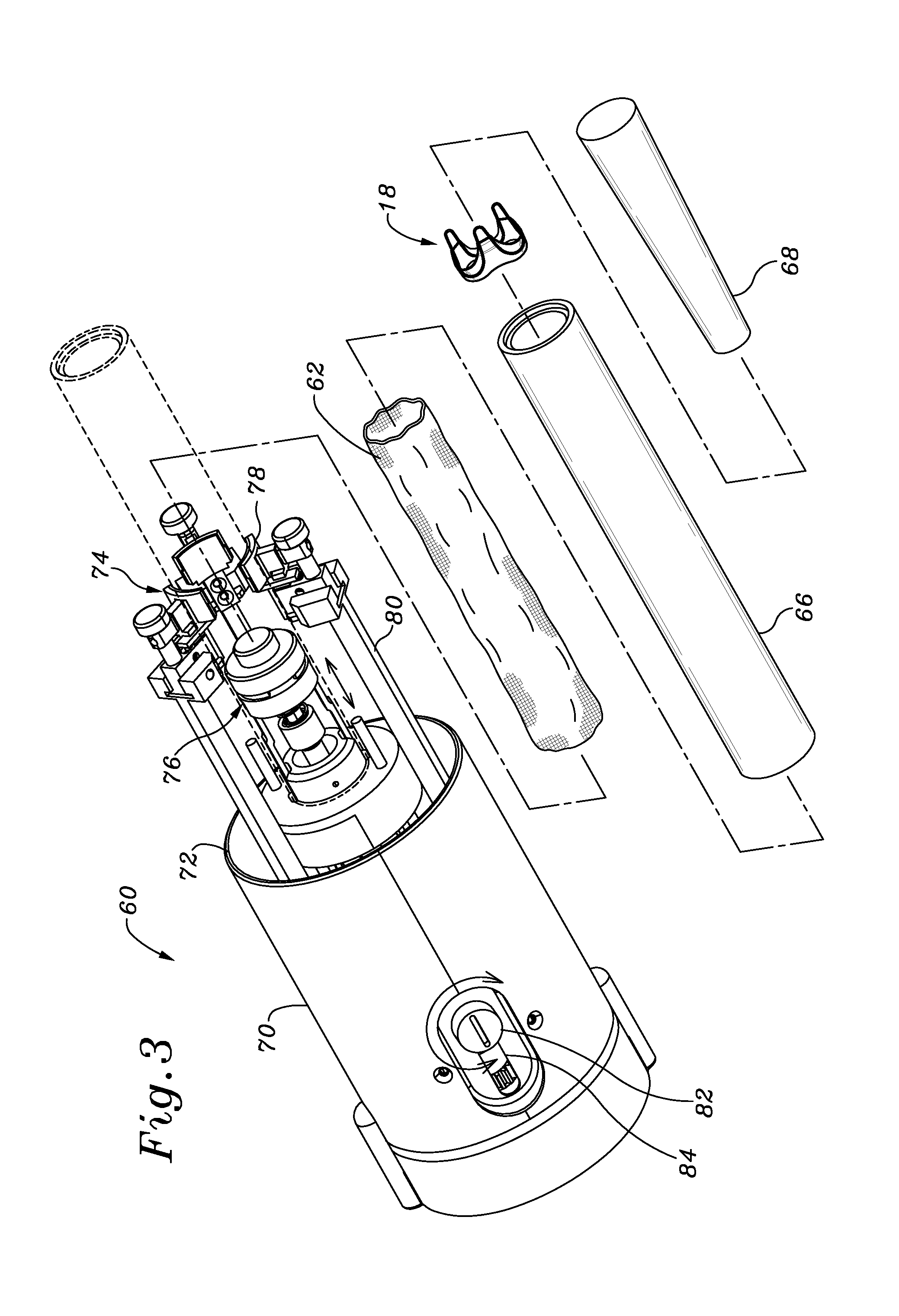Methods for assembling components of a fabric-covered prosthetic heart valve
a heart valve and fabric-covered technology, applied in the field of medical devices, can solve the problems of increasing the difficulty of the task, labor-intensive and time-consuming, and improving the quality control in the manufacture of heart valves, so as to eliminate a significant source of ergonomic stress and injury, and improve speed and quality
- Summary
- Abstract
- Description
- Claims
- Application Information
AI Technical Summary
Benefits of technology
Problems solved by technology
Method used
Image
Examples
Embodiment Construction
[0056]The present invention provides a system for automating one or more steps of a prosthetic heart valve fabrication procedure. The steps of the procedure illustrated and described involve stretching and sewing a tubular piece of fabric around a support stent. It should be understood by those of skill in the art that the illustrated support stent is only exemplary, and the present invention can be used to cover various support stents. Furthermore, various aspects of the present invention may be used in other steps of a heart valve fabrication process. For example, mechanisms similar to those shown and described may be used to cover other parts of a prosthetic heart valve with fabric. Up to now, prosthetic heart valve assembly has been an almost entirely manual, labor-intensive process. The present invention therefore represents a pioneering effort to automate at least some of the process of assembling heart valves.
[0057]The present invention involves generally two stages: a first ...
PUM
 Login to View More
Login to View More Abstract
Description
Claims
Application Information
 Login to View More
Login to View More - R&D
- Intellectual Property
- Life Sciences
- Materials
- Tech Scout
- Unparalleled Data Quality
- Higher Quality Content
- 60% Fewer Hallucinations
Browse by: Latest US Patents, China's latest patents, Technical Efficacy Thesaurus, Application Domain, Technology Topic, Popular Technical Reports.
© 2025 PatSnap. All rights reserved.Legal|Privacy policy|Modern Slavery Act Transparency Statement|Sitemap|About US| Contact US: help@patsnap.com



